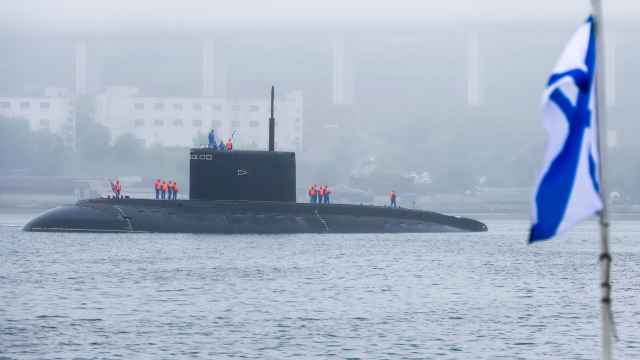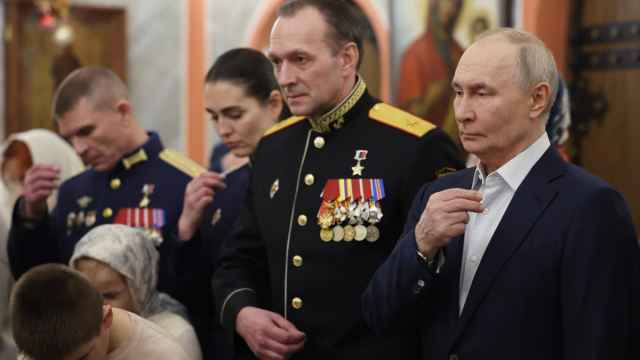The government has pledged not to abandon its Soviet-era single industry towns, despite warnings from economists that many of the blighted cities are a drag on the country's economic growth.
"The question of supporting monogorods is important and pressing," Deputy Finance Minister Anton Siluanov told reporters Thursday. "When the [global economic] crisis hit, the monogorods lost the most."
Although the 2011 budget does not envision any specific funds, fiscally conservative Finance Minister Alexei Kudrin admitted last week that the pre-presidential election year might bring a "desire to solve certain social issues."
Public discontent that flared up in single-industry towns last year could revive if their economies deteriorate.
Prime Minister Vladimir Putin, who frequently visits crisis-hit areas, last week pledged to continue to prop up the country's industrial base.
Earlier this year, he ordered the allocation of 27 billion rubles ($875 million) from the federal budget to cash-strapped towns.
Russia has about 460 single-industry towns, a product of Stalinist industrialization and urban planning. Ranging from 5,000 to 700,000 people, they tend to be far away from Moscow and St. Petersburg, where the recent economic recovery has been felt most strongly.
Vedomosti reflected the tensions Thursday with the headline "Dumped Again" after Kudrin said no federal money would go to the cities next year. The Finance Ministry was quick to "correct" the statement.
"Yes, it is true we're not planning any money for monogorods for the next year, but that does not exclude support in future years," Siluanov told reporters. "The situation in our monogorods is very sensitive and it is constantly monitored by our authorities: the prime minister and the president."
The problem gained prominence in 2009 after a strike in Pikalyovo, in the Leningrad region. The town of 22,000 is almost entirely dependent on a cement-producing complex, part of which is owned by billionaire Oleg Deripaska.
Putin chastised Deripaska last year and ordered him to restart his 50-year-old factory along with other related enterprises in the town.
But economists argue that Russia is hampering its economic growth by channeling funds to towns that have long since lost their competitive advantage.
"Last year's fiscal stimulus contained a healthy dose of poorly targeted, populist measures, for example, propping up grossly inefficient one-industry towns through state subsidies," said Neil Shearing at Capital Economics in London.
Russia is aiming for a 4 percent increase in its gross domestic product this year.
This is less than half of what is forecast for China and even below the 6 percent or higher expected in Turkey, which has not benefited from factors such as high oil prices and a fiscal stimulus package that are lifting the Russian economy.
"Russia is probably now going to struggle to get anywhere near the earlier official projection of 4 percent plus growth for the full year in 2010," Timothy Ash at the Royal Bank of Scotland wrote in a note.
"Considering the 7.9 percent real GDP contraction in 2009, the likely 2010 out-turn would be disappointing," he wrote.
A Message from The Moscow Times:
Dear readers,
We are facing unprecedented challenges. Russia's Prosecutor General's Office has designated The Moscow Times as an "undesirable" organization, criminalizing our work and putting our staff at risk of prosecution. This follows our earlier unjust labeling as a "foreign agent."
These actions are direct attempts to silence independent journalism in Russia. The authorities claim our work "discredits the decisions of the Russian leadership." We see things differently: we strive to provide accurate, unbiased reporting on Russia.
We, the journalists of The Moscow Times, refuse to be silenced. But to continue our work, we need your help.
Your support, no matter how small, makes a world of difference. If you can, please support us monthly starting from just $2. It's quick to set up, and every contribution makes a significant impact.
By supporting The Moscow Times, you're defending open, independent journalism in the face of repression. Thank you for standing with us.
Remind me later.





